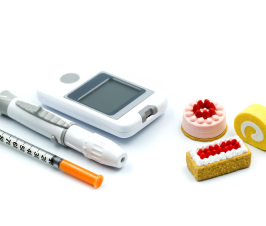“How can I get more energy?” This is a common question that many individuals in our day and age wonder. While many of us will resort to something caffeinated to increase our energy, there are many other ways to help support energy – whether you need a quick boost or long-term energy management.
Regulate Cortisol
Adaptogenic herbs such as Withania somnifera, Eleutherococcus senticosus, Rhodiola rosea and Shisandra chinensis have been shown reduce cortisol, and prevent us from having energy crashes throughout the day. Adaptogens regulate stress via modulating the hypothalamic-pituitary-adrenal axis1. This in turn helps to increase our resilience to stress, improve mental and physical performance, reduce anxiety and can even improve depression – having a direct effect on our overall energy levels. Many of us nowadays “burn the candle” on both ends, leading to burnout and fatigue. Everyday stress causes the adrenal glands, which are small organs located above the kidneys, to produce more cortisol production. Physiologically, this increases feelings of overwhelm, mood swings, irritability and an after effect of fatigue and exhaustion. By regulating cortisol, adaptogens reduce feelings of anxiety and stress, leading to improved overall energy.
Nourish the Nervous System
Incorporating nervous system tonics such as b vitamins, and magnesium has been shown to increase overall energy2,3. Magnesium is incorporated in a number of bodily reactions, one them involving energy production in the mitochondria. B vitamins, especially B12, B6 and B9 nourish the nervous system by preserving neuron health and supporting neurotransmitter function in the brain. B vitamins, mainly B6 are also involved in energy production and metabolism. Overall, by supporting brain function and energy production, B vitamins and Magnesium have an effect on reducing fatigue.
Stabilize your Blood Sugar
Reactive hypoglycemia, or “blood sugar crashes” are one of the number one reasons that you might be feeling tired2. When consuming simple carbohydrates such as white flours, the high sugar content causes the pancreas to release large amounts of insulin, leading to hypoglycemia and low energy. Instead of reaching for something with refined sugar, snack on foods containing protein, complex carbohydrates and healthy fats.
Quick Daily Energy Boosts
- Meditate – Meditation and deep breathing can help reduce stress and anxiety which help us think more clearly and feel more energized.
- Go for a walk or do yoga – Walking can increase cognitive performance, energy and reduce stress by improving circulation, especially to the brain. Our bodies require daily sunlight to regulate our circadian rhythms, which are also involved in energy. By taking a 10-minute walk to recharge in sunlight, we can receive fresh air, experience the benefits of nature, and increase our overall energy and wellbeing.
- Get social – Social interaction is healthy and reduces feelings of depression and isolation. Avoid using technology as a means of communication – face-to-face interaction trumps technology any day.
- Reduce eyestrain – Sitting at a desk and starting at computer screen or paper causes eyestrain, which can make you feel tired as well. Try letting your eyes relax by looking off into the distance every 10 minutes, and taking computer breaks.
- Eat a snack containing protein and healthy fats – Great examples of this are nuts an nut butter with a complex carbohydrate such as an apple or a brown rice cake, or hummus with vegetables.
Multi-factorial Fatigue
Fatigue is multi-factorial and correlated with many conditions such as thyroid imbalances and nutrient deficiencies. In order to best evaluate your fatigue, it is important to get adequate testing in order to determine the root cause of this symptom. Visiting a naturopathic doctor can help to increase your energy short term, but most importantly can provide you with increased energy and vitality long term.
Photo by Konstantin Planinski on Unsplash
 Dr. Kaitlyn Zorn, HBSc., ND, is a Registered Naturopathic Doctor practicing in Guelph, Ontario, at Healing Foundations Naturopathic Clinic. Kaitlyn considers herself a general family practitioner, seeing a variety of concerns, however, has a keen interest in mental health (stress, anxiety & depression), hormonal imbalances (women’s health, adrenal & thyroid conditions) and digestive concerns (food sensitivities, bloating, indigestion). She can work with you to reduce your stress, balance hormones and improve digestion alongside providing a treatment plan that is individualized for your unique concern. Most importantly, Kaitlyn helps to empower you to be your best self so you can live your life to the fullest. Did you know that most extended coverage plans offer some coverage for naturopathic services? Look into yours today and book either a complimentary 15-minute Meet & Greet or an Initial Consultation at [email protected]. Stay in the loop with Kaitlyn by following her on Instagram: @drkaitlynzorn.nd and Facebook: www.facebook.com/drkaitlynzornguelph/
Dr. Kaitlyn Zorn, HBSc., ND, is a Registered Naturopathic Doctor practicing in Guelph, Ontario, at Healing Foundations Naturopathic Clinic. Kaitlyn considers herself a general family practitioner, seeing a variety of concerns, however, has a keen interest in mental health (stress, anxiety & depression), hormonal imbalances (women’s health, adrenal & thyroid conditions) and digestive concerns (food sensitivities, bloating, indigestion). She can work with you to reduce your stress, balance hormones and improve digestion alongside providing a treatment plan that is individualized for your unique concern. Most importantly, Kaitlyn helps to empower you to be your best self so you can live your life to the fullest. Did you know that most extended coverage plans offer some coverage for naturopathic services? Look into yours today and book either a complimentary 15-minute Meet & Greet or an Initial Consultation at [email protected]. Stay in the loop with Kaitlyn by following her on Instagram: @drkaitlynzorn.nd and Facebook: www.facebook.com/drkaitlynzornguelph/
References:
- Panossian A, Wikman G. Evidence-based efficacy of adaptogens in fatigue, and molecular mechanisms related to their stress-protective activity. Curr Clin Pharmacol. 2009;4(3):198-219. Doi: 10.2174/157488409789375311.
- Gaby A (2011). Fatigue (excluding chronic fatigue syndrome). Nutritional Medicine. Concord, NH: Fritz Perlberg Publishing.
- Cox IM, Campbell MJ, Dowson D. Red blood cell magnesium and chronic fatigue syndrome. Lancet. 1991;337(8744):757-60. Doi: http://dx.doi.org/10.1016/0140-6736(91)91371-Z.

















